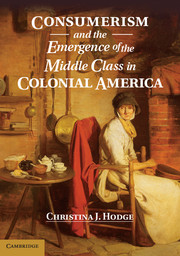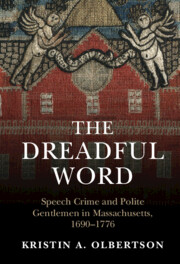Consumerism and the Emergence of the Middle Class in Colonial America
This interdisciplinary study presents compelling evidence for a revolutionary idea: that to understand the historical entrenchment of gentility in America, we must understand its creation among non-elite people: colonial middling sorts who laid the groundwork for the later American middle class. Focusing on the daily life of Widow Elizabeth Pratt, a shopkeeper from early eighteenth-century Newport, Rhode Island, Christina J. Hodge uses material remains as a means of reconstructing not only how Mrs Pratt lived, but also how these objects reflect shifting class and gender relationships in this period. Challenging the 'emulation thesis', a common assumption that wealthy elites led fashion and culture change while middling sorts only followed, Hodge shows how middling consumers were in fact discerning cultural leaders, adopting genteel material practices early and aggressively. By focusing on the rise and emergence of the middle class, this book brings new insights into the evolution of consumerism, class, and identity in colonial America.
- Innovative, critical perspective on the Consumer Revolution, a critical time in early American history
- Richly detailed archaeological and biographical study, of interest to both historians and archaeologists of colonial America
- Includes 50 black and white illustrations with detailed captions that situate the artifacts and artworks within eighteenth-century American culture
Product details
September 2014Hardback
9781107034396
224 pages
261 × 184 × 17 mm
0.77kg
47 b/w illus. 3 maps 13 tables
Available
Table of Contents
- Preface: vivent les revolutions
- 1. Introduction
- 2. Consuming contexts
- 3. Living spaces
- 4. At table
- 5. Keeping the shop
- 6. Legacies of the genteel revolution.






